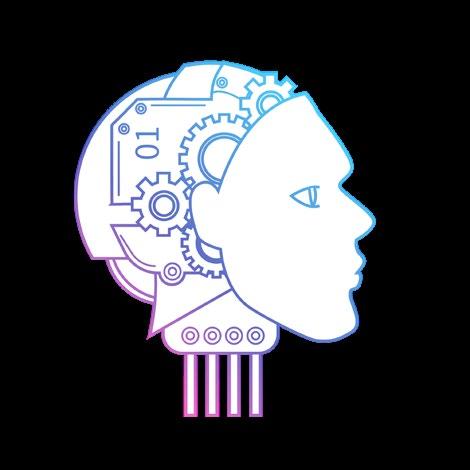2 minute read
AI in Law’s Future
By ChatGPT
Artificial intelligence (AI) is transforming industries across the board, and the legal profession is no exception. AI is already being used to streamline legal processes and improve efficiency, but the potential for AI in the law goes far beyond this. In this article, we will explore the role of AI in law and the potential for AI to revolutionize the legal profession.
One of the main applications of AI in the legal profession currently is in document review. AIpowered software can scan legal documents and flag important information for lawyers, making the review process faster and more accurate. This can save lawyers countless hours of time and improve the accuracy of legal work. Additionally, AI-powered chatbots are being used to assist clients with legal queries, making legal services more accessible and affordable.
However, the potential for AI in law goes far beyond these relatively simple applications. In the future, AI has the potential to revolutionize the way lawyers work, making legal services more efficient, accessible, and affordable for everyone.

One area where AI could have a significant impact is in the prediction of legal outcomes. By analyzing large volumes of data, AI algorithms can predict the likely outcome of legal cases with a high degree of accuracy. This could help lawyers to better advise their clients and improve the efficiency of the legal system by helping to settle cases out of court.
AI could also help to democratize the legal system by making legal services more accessible to people who cannot afford traditional legal services. By providing AI-powered legal advice, people could receive legal guidance without the need for expensive lawyers. This could help to level the playing field for people who might otherwise be unable to afford legal representation.
In addition, AI has the potential to help lawyers to work more efficiently. By automating routine legal tasks such as contract drafting and document review, AI could save lawyers countless hours of time. This would free them up to focus on more complex legal work, improving the quality of legal services and potentially reducing the cost of legal services.
One potential concern about the use of AI in law is the risk of bias. AI algorithms are only as unbiased as the data they are trained on, and there is a risk that AI could perpetuate existing biases in the legal system. For example, if an AI algorithm is trained on data that is biased against a particular group, it may perpetuate that bias in its recommendations.
To address this concern, it is important to ensure that AI algorithms are trained on diverse data sets and that their outputs are carefully monitored for bias. Additionally, it is important to ensure that AI is not used as a substitute for human judgment in legal decision-making. Rather, AI should be used to support and enhance human decision-making, not replace it.

Another concern about the use of AI in law is the risk of job loss. If AI is used to automate routine legal tasks, there is a risk that some legal jobs could become obsolete. However, it is important to remember that AI is not a substitute for human judgment and that there will always be a need for human lawyers to provide legal advice and guidance. Additionally, the use of AI could create new job opportunities in the legal profession, such as AI trainers and data analysts.
In conclusion, the potential for AI in law is vast. AI has the potential to improve the efficiency and accessibility of legal services, democratize the legal system, and enhance the quality of legal work. However, it is important to ensure that AI is used responsibly and that its outputs are carefully monitored for bias. Additionally, it is important to remember that AI is not a substitute for human judgment and that there will always be a need for human lawyers in the legal profession. As AI continues to develop, it is likely that its role in the legal profession will continue to grow, and it will be exciting to see how AI transforms the legal profession in the years to come.

